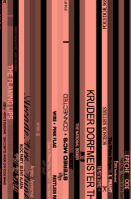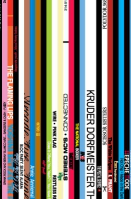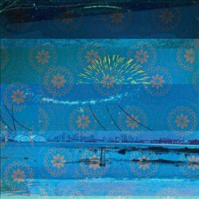Gold Panda
Lucky Shiner
London-based beatmaker Derwin Panda (for want of a more plausible surname) is one of the most appealing and subtly distinctive producers to emerge in recent years, with a versatile, emotionally resonant style, a keen sense of texture, and an equally strong melodic bent. Blowing against the prevailing electronic musical winds of his particular place and time — i.e., dubstep and its myriad offshoots — his music can instead be likened, at least in places, to the hypnotic, hip-hop-influenced work of Los Angelenos like Nosaj Thing and Flying Lotus, the tender glitch-pop of Dntel (see, especially, the complementary "Before We Talked" and "After We Talked"), and the gliding, quasi-ambient trance of the Field (check "Snow & Taxis" and "Marriage"). More than anything, though, Lucky Shiner posits Panda as a true successor, even a peer, to his inimitable countryman Kieran Hebden, aka Four Tet, particularly in light of the latter's recent, clubbier output. One thing he shares with Hebden, and all of the aforementioned artists, is a fundamental focus on texture, which manifests both at the level of individual sounds — most of these tracks' constituent elements have a highly organic warmth and graininess, including plenty of artifactual static and vinyl crackle — and at the macro level of composition and layering. Like Four Tet and the Field, Gold Panda's music is largely sample-based, with its source material chopped up into such short, clipped fragments (then rearranged into stuttering, yet strangely fluid, heavily rhythmic "melodies") that it sometimes recalls the microsampling of producers like Matthew Herbert. A good example is the stunning opener, "You," probably Lucky Shiner's greatest highlight: a sliced-and-diced, sitar-laced snippet of the titular word (and, occasionally, "me"), repeated in incessant syncopation atop a steady but constantly evolving backdrop of tambourines and flute-like drones, pegged to a slinky, half-time boom-clap oddly reminiscent of Nine Inch Nails' "Closer." "Vanilla Minus" and "Snow & Taxis," the most straightforwardly constructed pieces here, function similarly, with ostinato sample-riffs and a dance-friendly 4/4 thump. But even Lucky Shiner's simplest moments manage to be tremendously engaging and effective, thanks to the freshness and evocative power of the specific sounds involved. As hinted by track titles like "Same Dream China" and "India Lately" (as well as "Quitter's Raga," his 2009 breakthrough track, and, incidentally, his moniker itself), Gold Panda often draws on a distinct if diffuse Asian influence, employing a wide array of Eastern sounds and timbres — bells, flutes, strings, chanting, percussion, etc. — which are novel enough to sound fresh but usually treated with a sufficient degree of distance and abstraction to avoid the canned exoticism of "ethno-techno." With its array of vibrant, vivid sounds, pop-friendly track structures and lengths (mostly three to five minutes), and emphasis on emotion and musicality, Lucky Shiner is an immensely likable and listenable album that should appeal to listeners of many stripes.







































































































































